If you want to score well in your English exams, especially in Class 9 story writing, Punjab Textbook Board. They’re accurate and easy to learn, and many students have aced their exams using them.
With our notes, you’ll understand everything better and be ready to get top marks in your English exams. These notes include 13 stories straight from the Punjab textbook and an extra 14 stories from a special outline.
Class 9th Story Writing Punjab Textbook Board
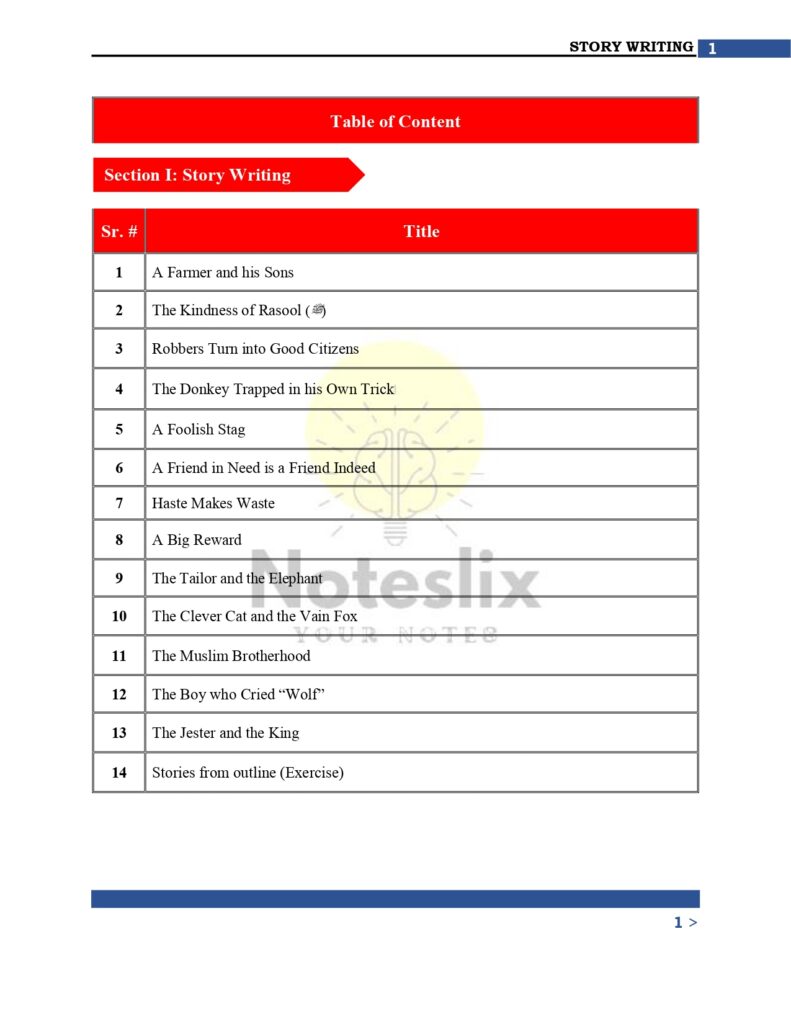
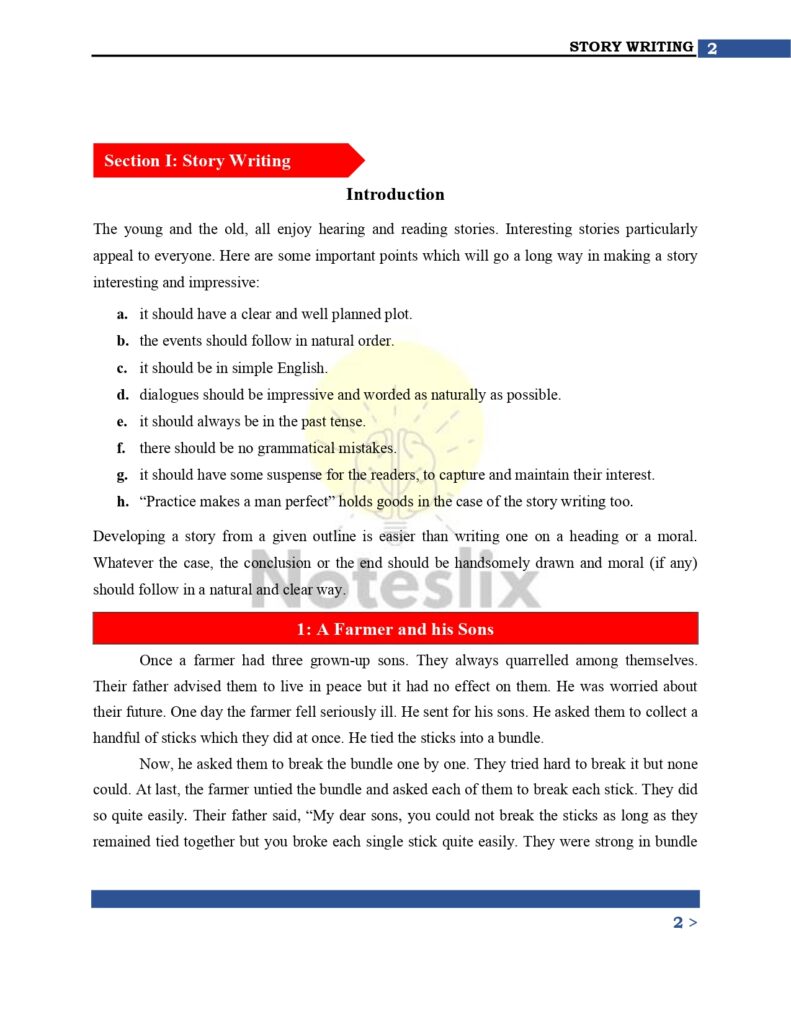

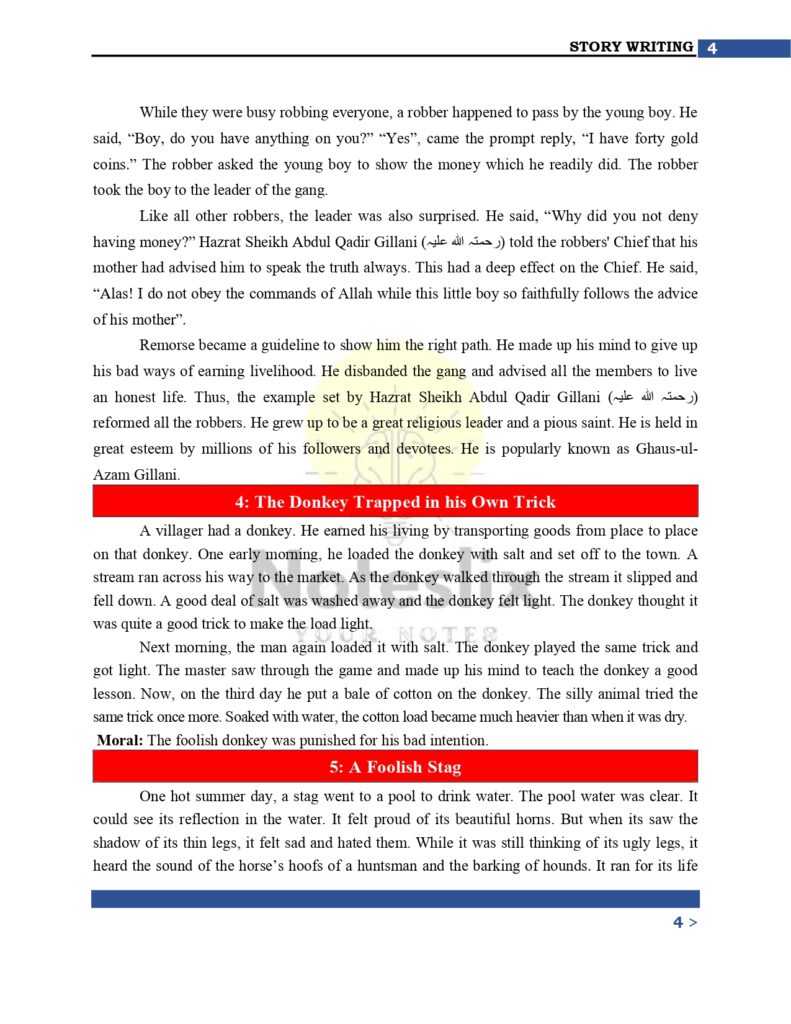

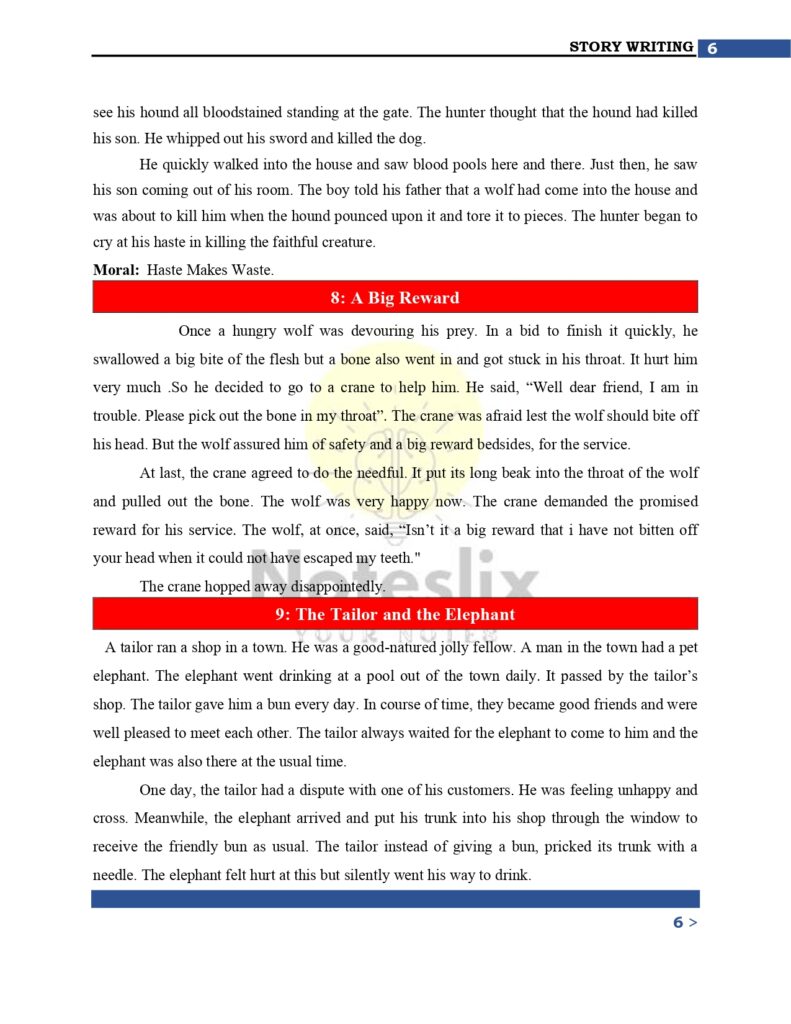
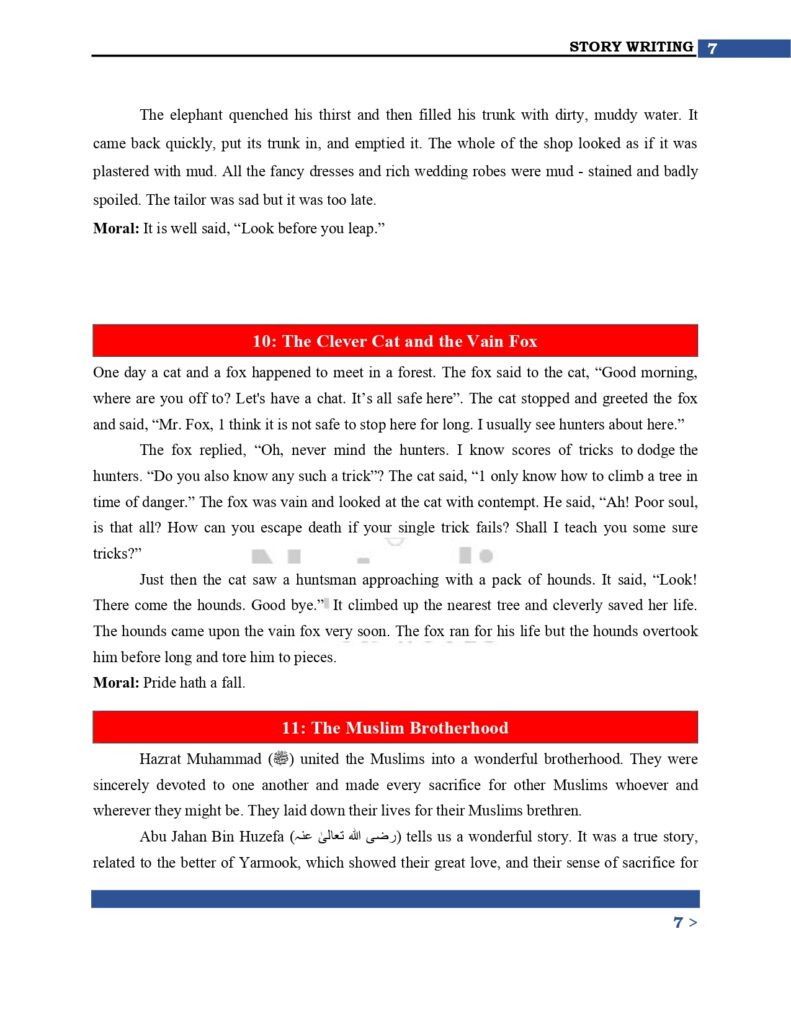



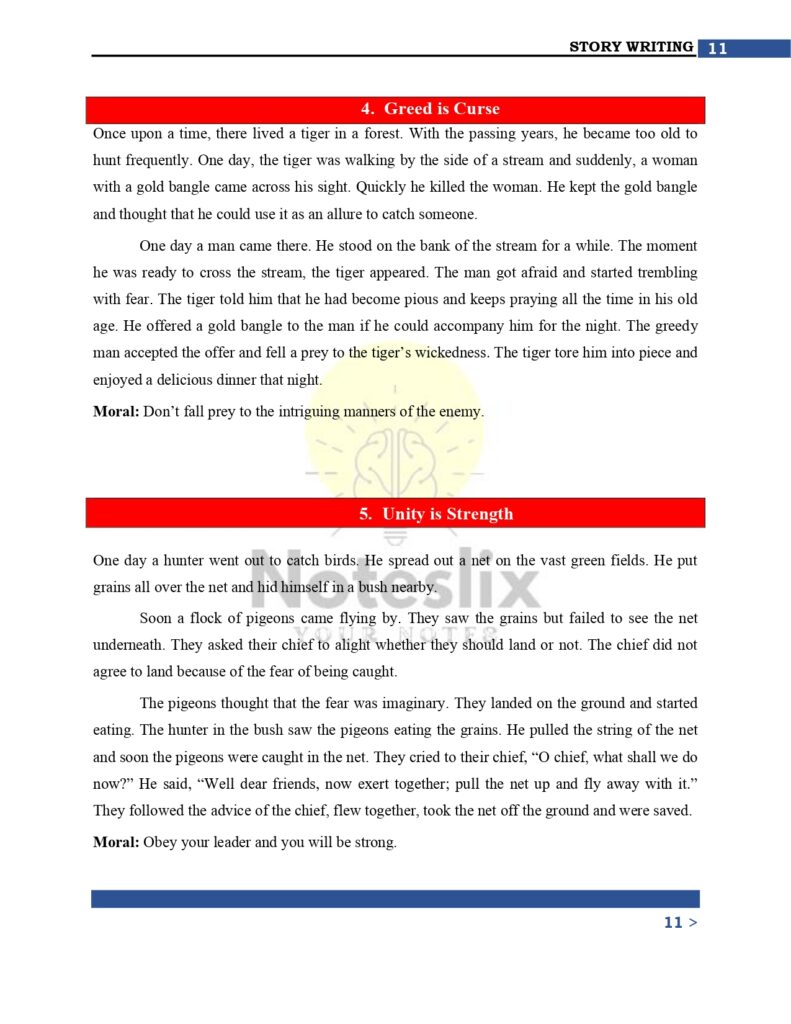
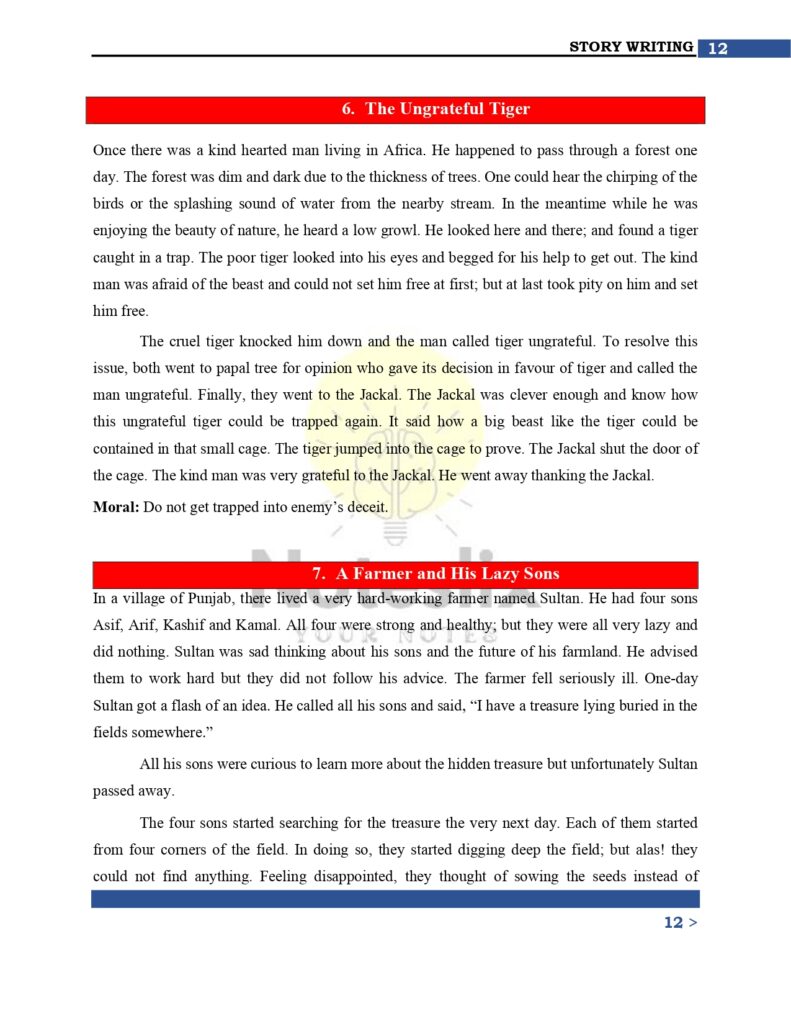
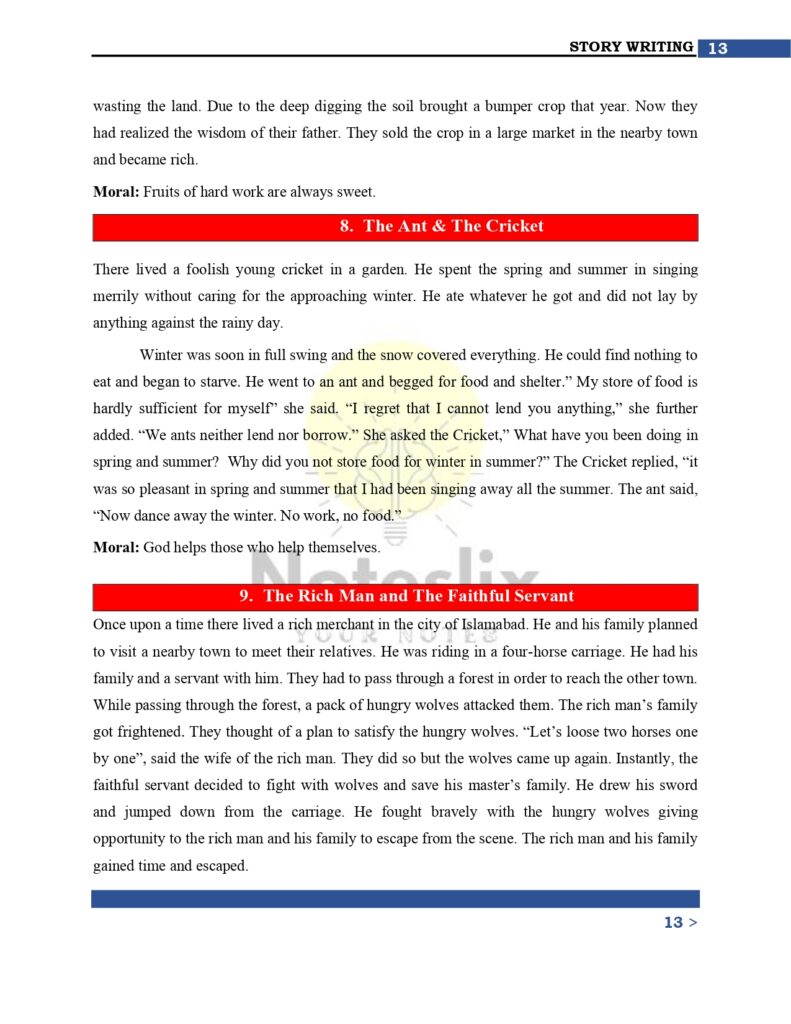

Related Post
Story-Writing Tips for Class 9th Students
Here are some story-writing tips advised for Class 9 students of the Punjab Board:
1. Mind Your Tenses
Pay close attention to the tense you’re using throughout your story. Consistency is key. If you start in the past tense, stick to it throughout your narrative.
2. Active Voice in Past Tense
Opt for an active voice when narrating events in the past. This makes your story more engaging and immediate for the reader.
3. Simplicity is Key
Keep your sentences simple and concise. Avoid using overly complex language that might confuse your readers. Remember, clarity is paramount.
4. Short and Sweet Sentences
Utilize short sentences to maintain a brisk pace and keep your readers hooked. Short sentences add rhythm and flow to your storytelling.
5. Stay on Topic
Stick to the main theme or topic of your story. Avoid unnecessary tangents or subplots that might distract from your central narrative.
6. Create Vivid Characters
Develop your characters with depth and personality. Describe their appearance, actions, and emotions to bring them to life for your readers.
7. Show, Don’t Tell
Instead of telling your readers what’s happening, show it through descriptive language and vivid imagery. Let your readers experience the story through the characters’ eyes.
8. Build Suspense
Use cliffhangers and unexpected twists to keep your readers intrigued and eager to know what happens next.
9. Edit and Revise
After writing your first draft, take the time to edit and revise your story. Look for spelling and grammar errors, and refine your language to make your story shine.
10. Seek Feedback
Don’t hesitate to share your story with classmates, teachers, or family members for feedback. Constructive criticism can help you improve and polish your storytelling skills.
Short Summaries of all stories
Here you will get summaries of all the Punjab textbook board stories for class 9. This will give you a rough idea about the story’s topics.
A Farmer and his Sons:
A farmer teaches his sons the strength of unity by showing them that a bundle of sticks is unbreakable when together but can be easily broken when separated, imparting the importance of family cohesion and teamwork.
The Kindness of Rasool (صلى الله عليه وسلم):
The Kindness of Rasool (صلى الله عليه وسلم)” illustrates Prophet Muhammad’s (peace be upon him) compassionate treatment of animals.
One instance depicts him allowing a bird to remain undisturbed in its nest, despite the opportunity to remove it.
This act reflects the Prophet’s respect for all living creatures, emphasizing the Islamic value of mercy and compassion towards animals.
Robbers Turn into Good Citizens:
A group of robbers experiences a change of heart after encountering the wisdom and kindness of a wise man.
His teachings inspire them to abandon their criminal ways and embrace a life of honesty and integrity, showcasing the transformative power of guidance and compassion.
The Donkey Trapped in His Trick:
In this tale, a donkey attempts to outsmart his master but ends up falling victim to his cunning plan. The story highlights the consequences of deceit and the importance of honesty and integrity in one’s actions.
A Foolish Stag:
A foolish stag, disregarding his instincts, falls into a trap set by hunters due to his lack of caution and wisdom, teaching the lesson of the importance of being mindful and cautious in decision-making.
Conclusion
The Class 9 Story Writing Punjab Textbook is an essential tool for students to hone their creative writing skills. It provides a structured approach to story writing, helping students to express their thoughts and ideas effectively.
The textbook not only prepares students for their exams but also equips them with a skill that is valuable beyond the classroom.
Therefore, mastering story writing with the help of the Class 9 Story Writing Punjab Textbook is a step towards becoming a proficient writer and a creative thinker.
FAQs
What is the structure of the 9th Class English syllabus for the academic year 2024–25
The syllabus includes reading skills, an English main course book, a supplementary book, and poetry. It also covers vocabulary, grammar, and guided creative writing.
What are some tips for story writing for Class 9 students of the Punjab Board?
Students are advised to pay close attention to the tense they’re using throughout their story. Consistency is key. If they start in the past tense, they should stick to it throughout their narrative.
When will the 9th Class exams start in 2024?
The SSC Part-I Final Examination will start on May 19, 2024.
What books are recommended for 9th Class students in the Punjab Board for the year 2024?
The recommended books include the English Main Course Book for Class IX (for intensive study) and the English Literature Book (Supplementary Reader) for Class IX (for extensive study), both published by the Punjab School Education Board.
What does the 9th Class English paper pattern include?
The paper pattern includes specifics like letters, story writing, translation, dialogue writing, tenses, and understanding passages.